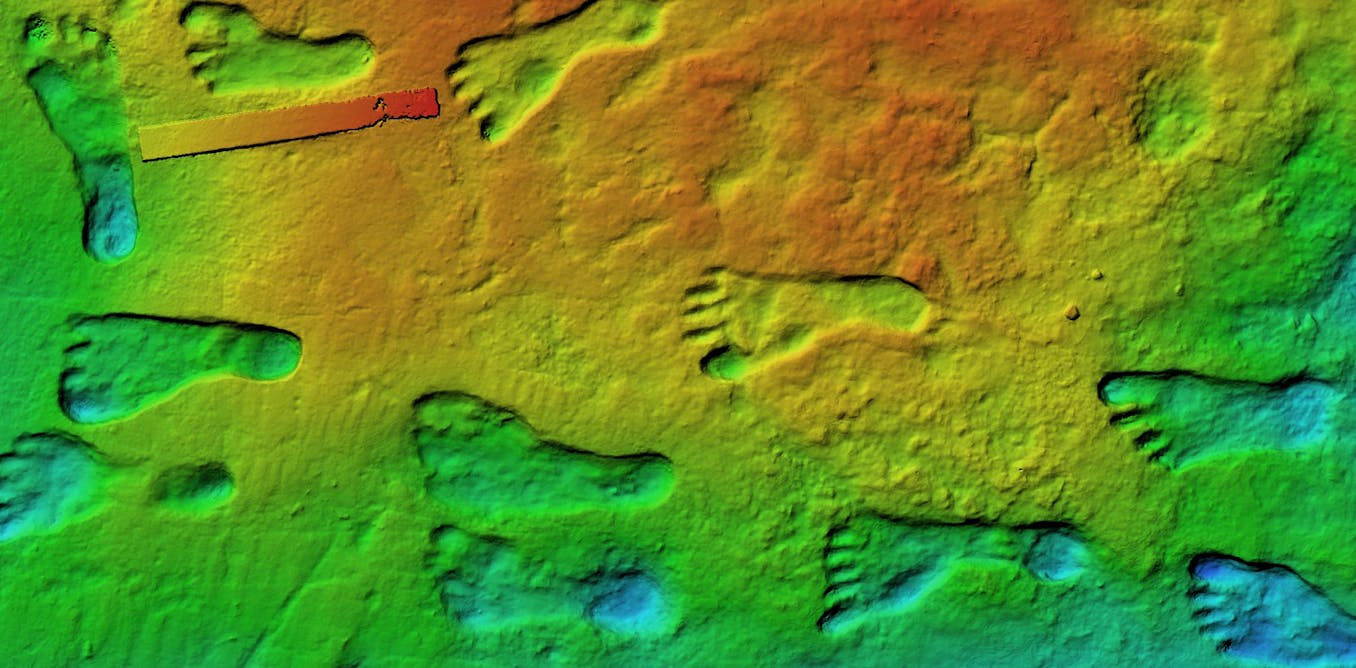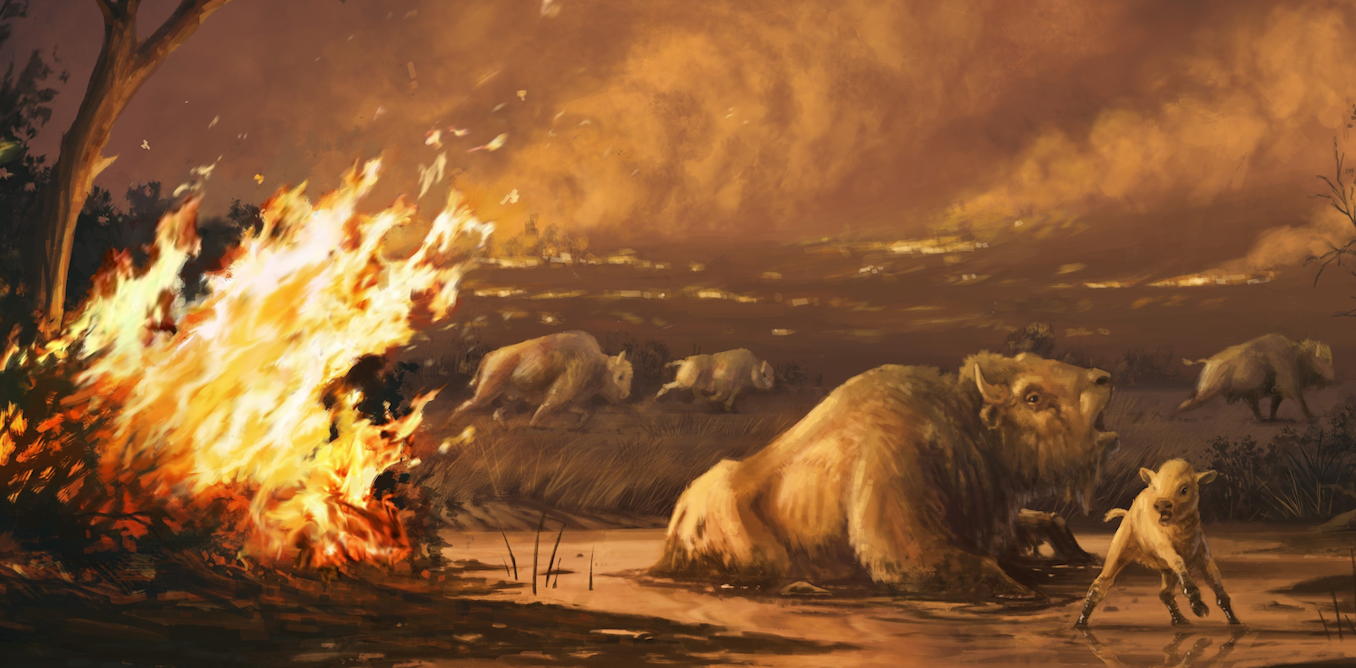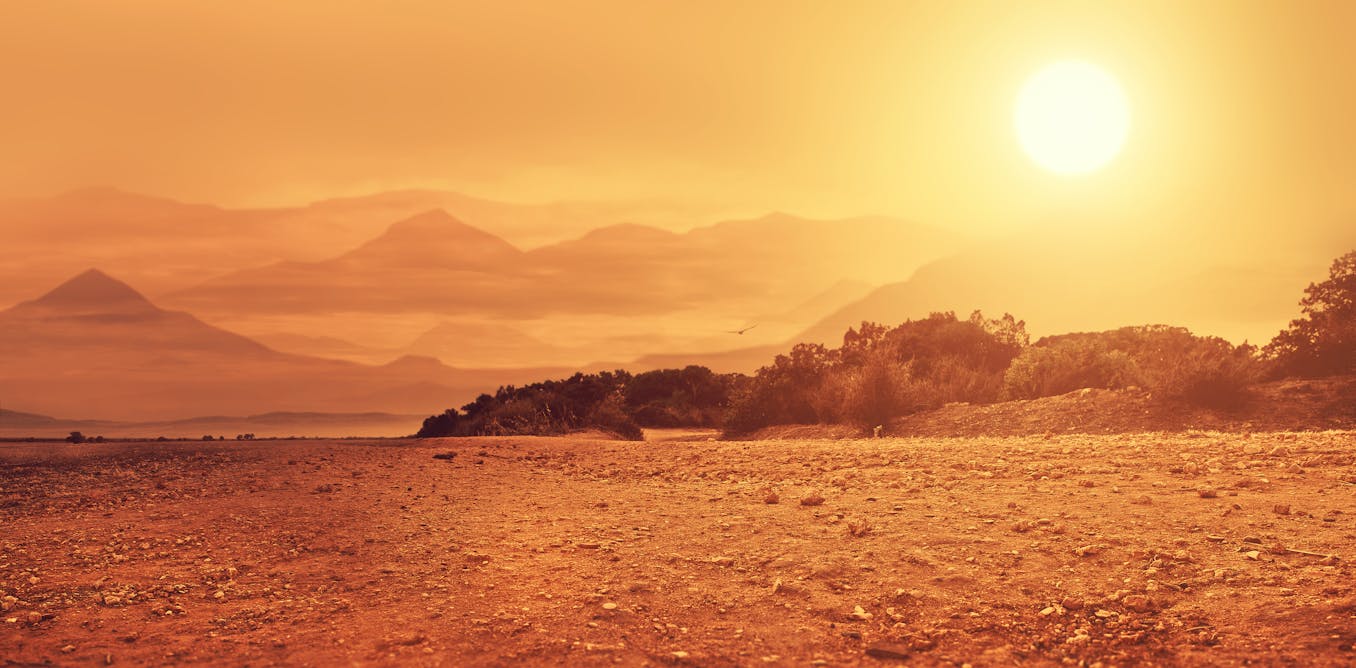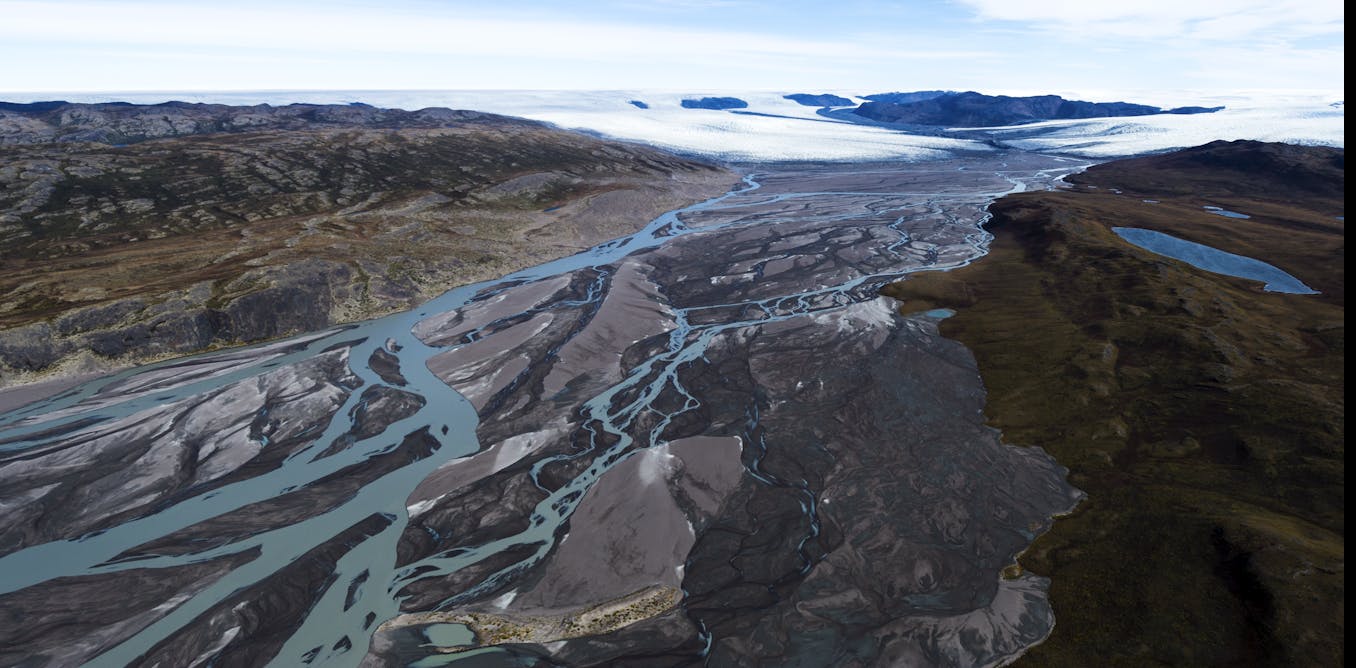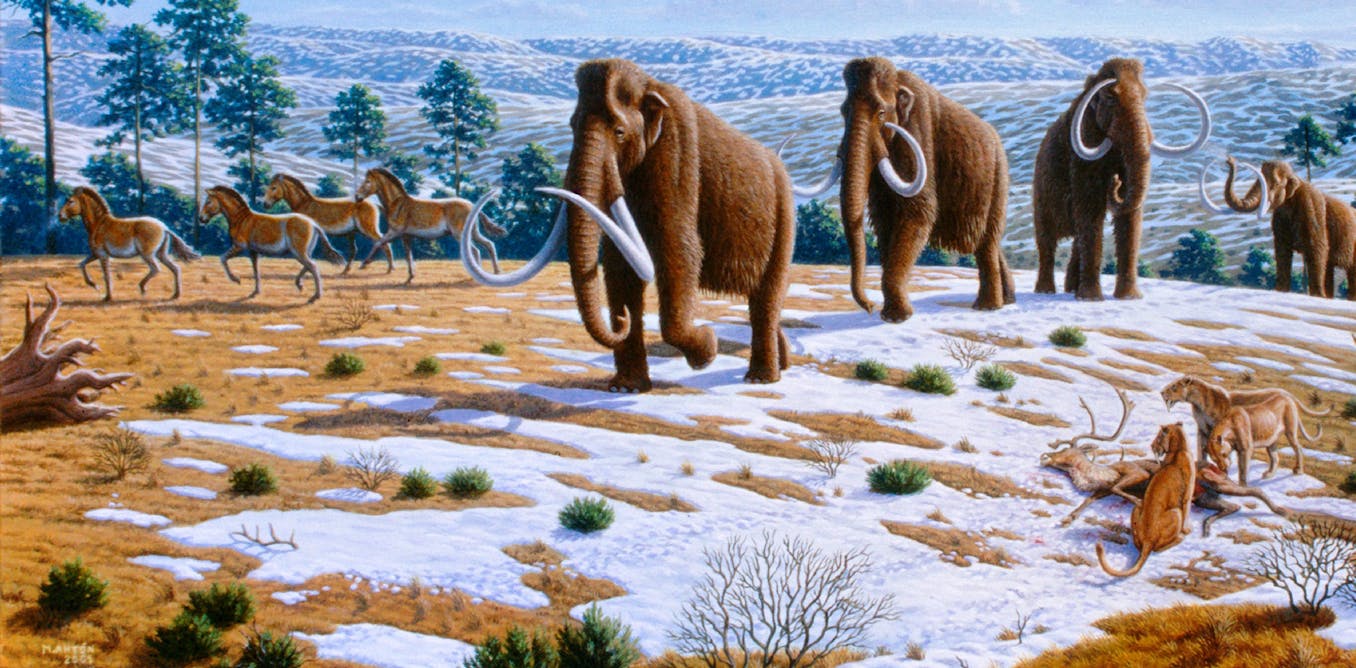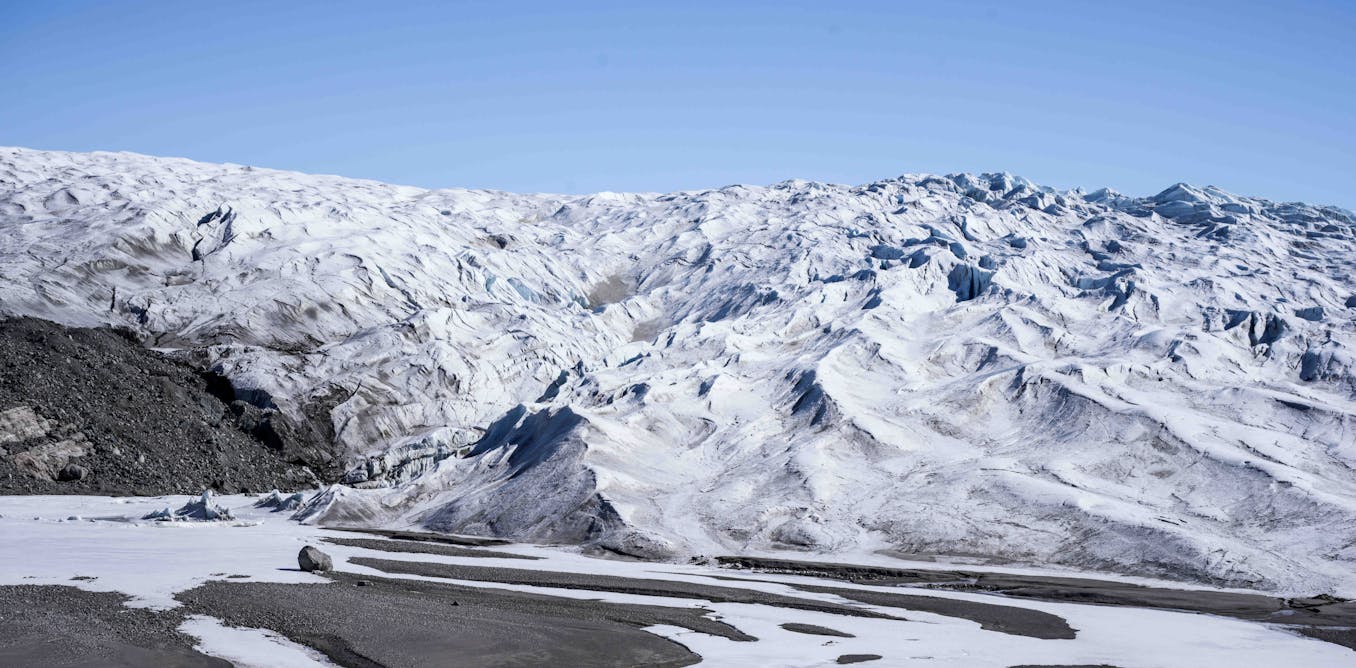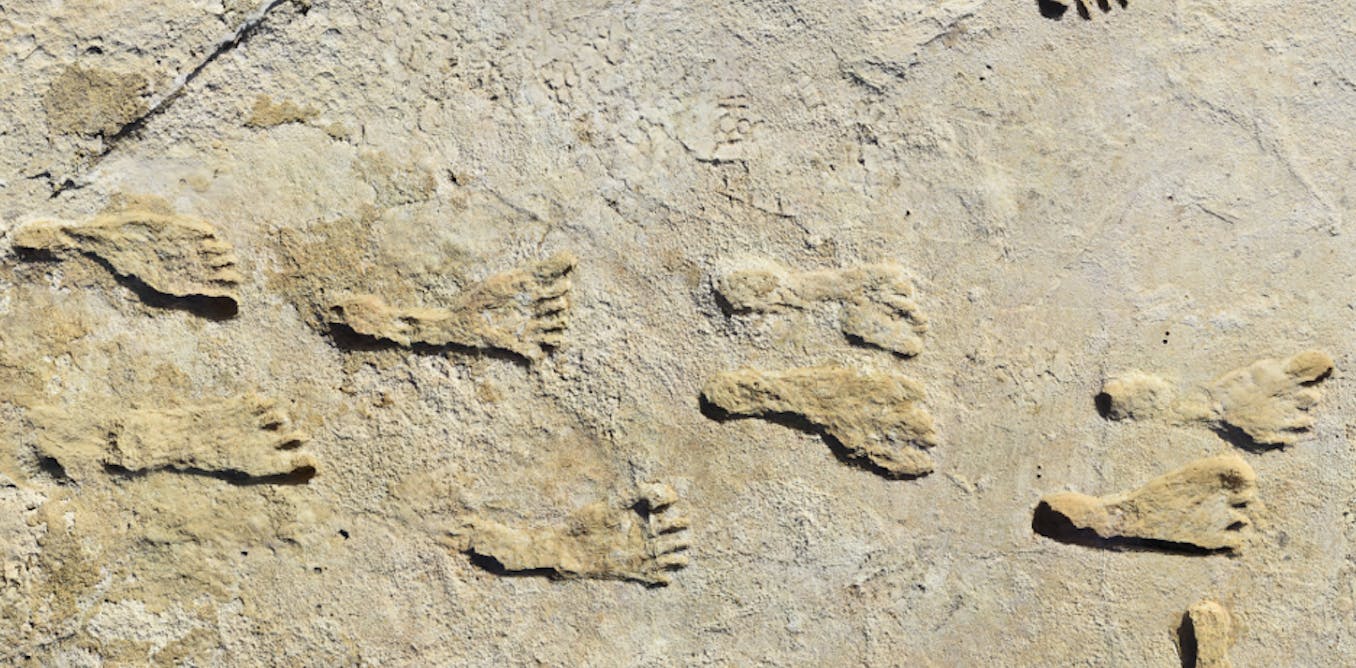A changing climate, growing human populations and widespread fires contributed to the last major extinction event − can we prevent another?
New findings from the La Brea Tar Pits in southern California suggest human-caused wildfires in the region, along with a warming climate, led to the loss of most of the area’s large mammals.
Aug. 17, 2023 • ~8 min
Rising methane could be a sign that Earth's climate is part-way through a 'termination-level transition'
The last time methane in the air rose so fast, Greenland warmed by 10°C within decades.
Aug. 14, 2023 • ~9 min
Is it really hotter now than any time in 100,000 years?
Long before thermometers, nature left its own temperature records. A climate scientist explains how ongoing global warming compares with ancient temperatures.
July 21, 2023 • ~7 min
When Greenland was green: Ancient soil from beneath a mile of ice offers warnings for the future
Knowing Greenland’s ice-free history offers a warning for the future as global temperatures rise.
July 20, 2023 • ~10 min
Forensic evidence suggests Paleo-Americans hunted mastodons, mammoths and other megafauna in eastern North America 13,000 years ago
A forensic technique more often used at modern crime scenes identified blood residue from large extinct animals on spearpoints and stone tools used by people who lived in the Carolinas millennia ago.
June 14, 2023 • ~9 min
Fossil footprints prove humans populated the Americas thousands of years earlier than we thought
The New Mexico findings could rewrite the history of human migration to the Americas.
Sept. 23, 2021 • ~7 min
What will the Earth be like in 500 years?
The Earth is constantly changing in natural ways, but most of those changes are very slow. Humans are speeding up other changes with global warming.
Aug. 2, 2021 • ~6 min
/
2

